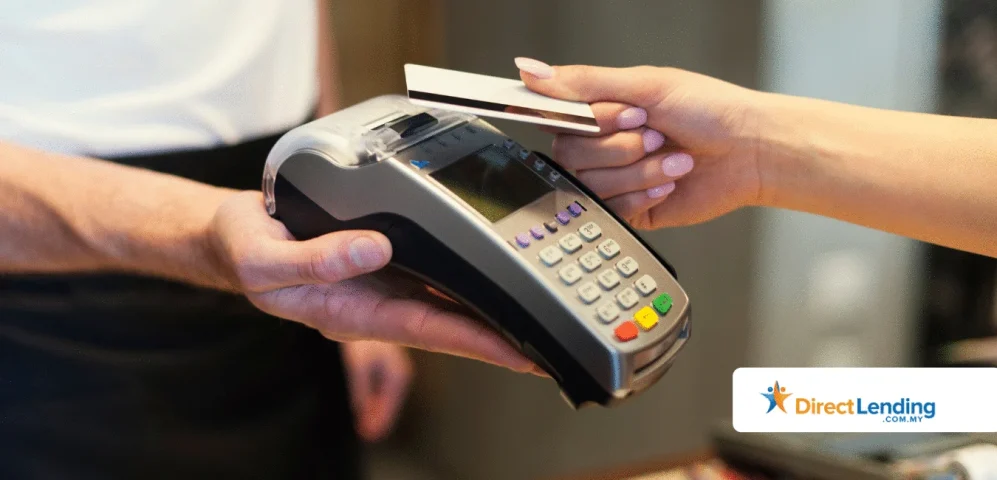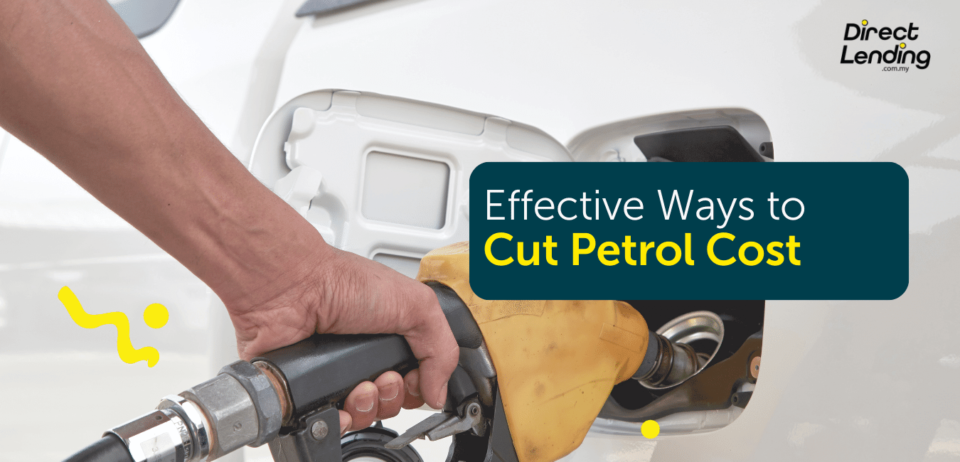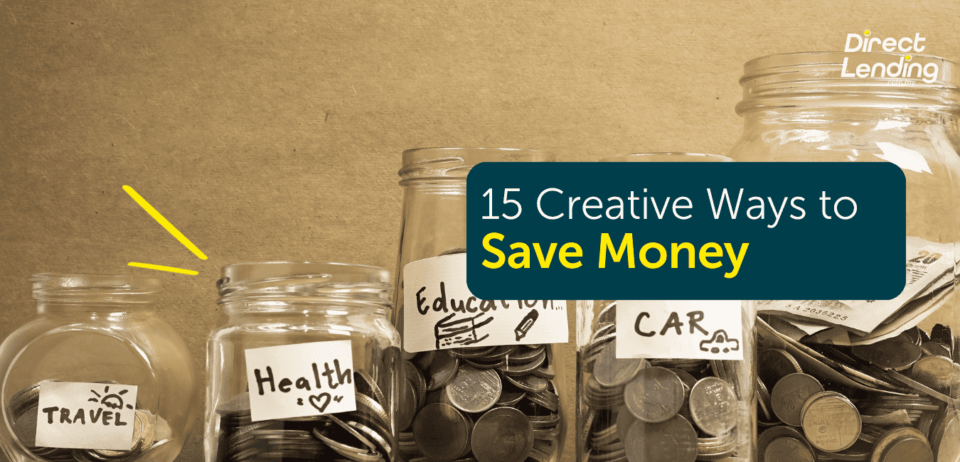By Yik Seong
Director
Should You Use Personal Loan To Pay Off Credit Card Debt?

(This article was originally published on the 30th January 2018 and updated on the 6th April 2021).
The greatest mess one can experience is to wallow in credit card debt. Credit cards ominously changed the spending habits of many. The so-called ‘plastic’ is no longer a status symbol. As the parameters on the issuance of credit cards have become more lenient, individuals belonging to the low to middle-income groups instantly obtained tremendous purchasing power. As a result, credit card spending is on the rise in Malaysia.
Facing the financial consequence
There’s actually nothing wrong with owning a credit card. Things that are previously unaffordable are within reach. Some even upgrade their lifestyles because of the newfound spending muscle. However, what comes with purchasing power is a bigger responsibility to use the plastic wisely.
The harshest consequence of the careless use of credit cards is debt accumulation. Many temptations to emotional spending only to realize the situation has gotten out of hand. The problem to minimize or pay off the debt sets in. The recourse is to avoid the imminent financial mess and take decisive action.
Securing a personal loan to pay off credit card debt

A solution taken by many to pay off credit card debts is to secure a personal loan. However, keep in mind the very purpose why you are taking on the loan. Your objective is to clean up your credit card debt while simultaneously curbing your spending.
Flat rate versus fixed rate

Before taking on a personal loan, analyze if that is the fitting move given your current financial condition. To begin with, there’s a whole lot of difference when it comes to interest rates.
Personal loan rates are FLAT
- Interest is computed based on the principal amount.
- Thus, you will be paying a uniform amortization for the entire term of the loan.
Credit card rates are FIXED
- Interest is compounded at the end of each day such that even if your balance is diminishing after every payment.
- Thus, interest computed is added to the outstanding balance and the computation is repeated until the balance is fully liquidated.
Comparing fixed and flat rates
For illustration purposes, let us assume that you have set a timetable of 2 years to pay off your credit card balance amounting to RM10,000. Assume too that you can pay at least RM500 monthly.
Rates for credit cards usually range from 15% to 18% per annum or 1.25% to 1.5% per month. Let’s say you can apply for a personal loan with Public Bank where the interest rate is 4.45% per annum (rates are accurate at the point of writing) or another loan with a similar interest rate. Should you consider this as an option?
| Credit Card | Personal Loan | |
| Debt/ Loan amount | RM10,000 | RM10,000 |
| Interest rate | 18% p.a. (Fixed) | 4.45% p.a. (Flat) |
| Tenure | 24 months | 24 months |
Clearly, the example shows that a personal loan comes out as the better option. Firstly, there’s already a huge disparity between the interest rates. That should be your primary consideration. Never take on a personal loan where the rate being offered is higher than your credit card.
| Credit Card | Personal Loan | |
| Min payment per month | RM500 | RM454 |
| Total payments for 2 years | RM500 x 24 months = RM12,000 | RM454 x 24 months = RM10,896 |
| Total interest paid (total payment – principal) |
RM2,000 | RM896 |
| Savings | RM1,104 |
Clearly, you will benefit and save in terms of the interest cost. Besides the lower amortization of RM454 versus RM500, the total difference of RM1,014 is material.
Benefits to using a personal loan to pay off credit card debt
1. Debt in one basket
It makes good financial sense to consolidate your credit card balances into one basket. Taking on a personal loan extinguishes your credit card balance and frees up your credit limit. You can reserve the use of your credit card for emergencies and necessities only.
2. Debt monitoring is easier
Since the amortization is uniform for the duration of the loan, it is easier to keep track of your debt. You are not likely to miss out on your loan payments and be consumed monitoring one or more credit card bills.
3. A savings tool
Based on the example, the greatest benefit is that taking on a personal loan becomes a savings tool. Effectively, the savings of RM1,014 translate to about 10% of the RM10,000 loan balance or principal. That’s a windfall for the smart saver.
Disadvantages of using a personal loan to pay off credit card debt
1. Encourage debt pile up
The test of financial maturity comes after paying off your credit card debt using a personal loan. Unless you can exercise discipline in using your freed-up credit card limit, you might as well skip the personal loan option.
2. Higher interest rate
As mentioned earlier, it is not advisable to borrow and pay off your credit card debt if the interest rate is higher. Maintain the status quo in this instance but be sure to make timely payments on your bills to maintain a satisfactory credit rating.
3. Hidden charges and fees
Be sure to inquire from your personal loan provider about the processing fees. There might be hidden or extra charges on top of the quoted interest rates. Lower interest rates might be enticing but with the addition of fees and other charges, the ‘real’ cost might be higher in the end.
The credit card balance transfer
Another alternative method to pay off your credit card debt is the so-called balance transfer. This scheme is suitable in case your credit card balance has reached critical boundaries. You have to scout for a credit card company that offers lower interest rates and low, if not zero balance transfer rates.
However, there’s a catch to a balance transfer scheme. There is an expiry date of the transfer rate. The low rate is just a come on and apply for a specific period. The rate will soon jack up, matching or sometimes higher than your previous credit card’s rate.
Take control of your spending
The spending power derived from the use of a credit card is superficial. If left unrestrained, it can lead to financial disaster. Further, the issue of bankruptcy is a serious matter in Malaysia. Do not wait for your credit card debt to accumulate and be added to the bankruptcy statistic. Deal with it quickly to have peace of mind. It’s better to be free from debt than have financial stress.
You can enjoy the flexibility to repay your credit card debt as fast as 2 days with Direct Lending. We are a personal loan platform offering bank and koperasi personal loan. Check your eligibility for 100% free with no processing fees or upfront payment.
About the writer
Yik Seong
Yik Seong is the founder of Direct Lending and Chartered Financial Analyst (CFA) Charterholder, with over 20 years of finance experience working in Malaysia, London, Singapore, and Hong Kong. Driven by his passion for finance, Yik Seong founded Direct Lending with a mission to provide safe and affordable financing to individuals with restricted access to credit channels. He enjoys long hikes during the weekend and never skips a morning coffee.



